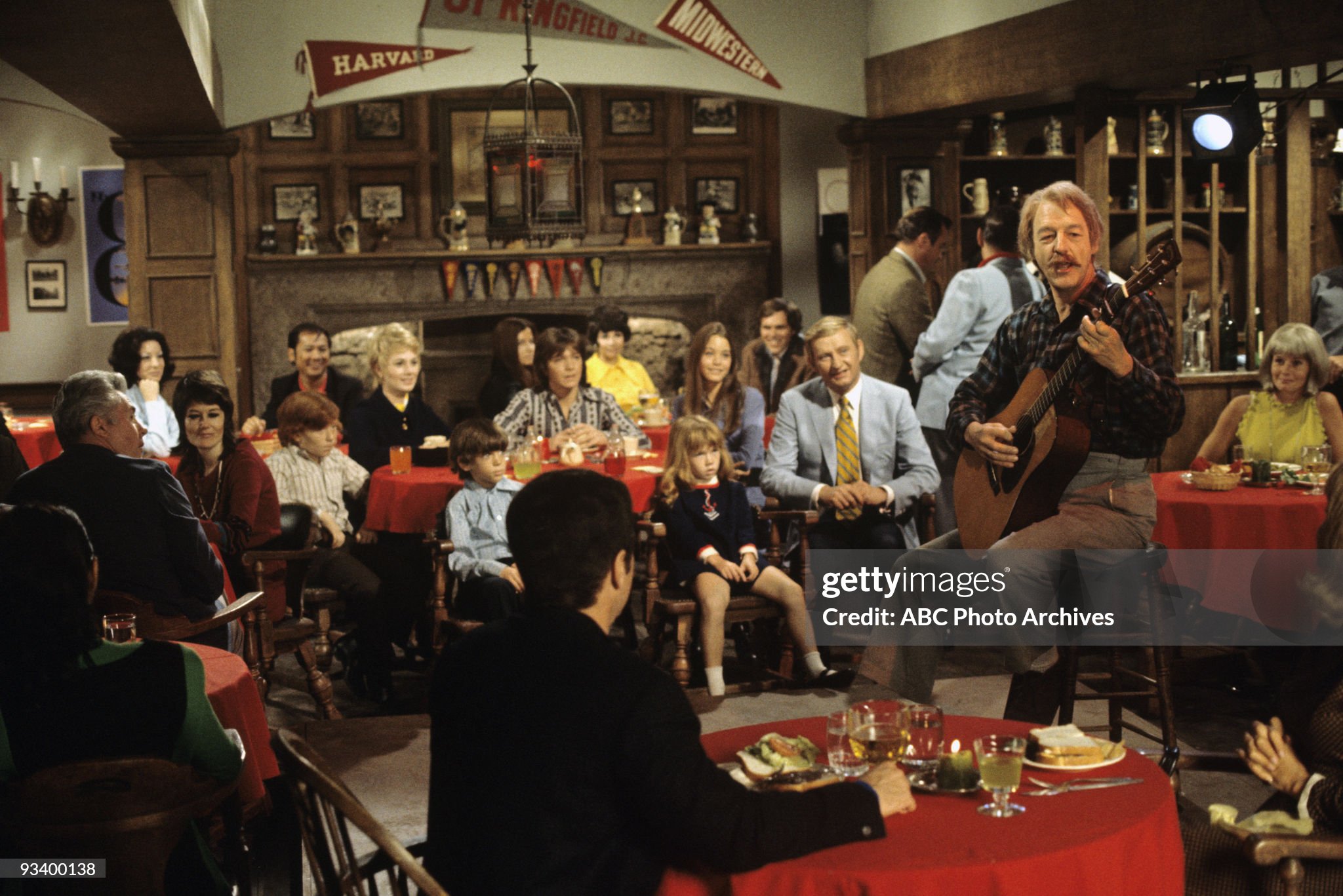
A quietly aching confession—choosing honest weather over borrowed sunshine, the sound of young love learning that joy can’t be forced and sorrow has its own kind of grace.
Essentials up top. Song: “She’d Rather Have the Rain.” Artist: The Partridge Family (lead vocal David Cassidy). Album: Up to Date (Bell Records, released February 1971). Writers: Terry Cashman & Tommy (T. P.) West. Producer: Wes Farrell. Recorded: May 16, 1970 at United Western Recorders, Hollywood. Placement/length: Side Two, Track 4 (album track 10), 3:17. Single status: album cut. First-season TV feature: Season 1, Episode 20 — “They Shoot Managers, Don’t They?” (aired February 12, 1971).
If you grew up with a walnut-console stereo humming in the corner, “She’d Rather Have the Rain” lands like a remembered evening—soft lights, a radio low, the hush that follows a small hurt. Tucked deep on Up to Date, it isn’t the showboat; it’s the confidant. The lyric’s premise is disarmingly plain: there are people you cannot cheer into happiness, souls who would rather have the rain than any bright thing you can offer. That’s not bitterness; it’s recognition. The melody keeps the thought company, moving with unhurried kindness rather than trying to argue it away. On the album page you’ll see how deliberately it’s placed: after the buoyancy of “There’s No Doubt in My Mind,” before the tender close of “I’ll Leave Myself a Little Time.” Sequenced that way, the song feels like a deep breath—the point where a calendar of crushes admits what love can’t fix.
On paper, the facts are tidy. Up to Date arrived in February 1971, cut largely at United Western with Los Angeles’s A-team: Hal Blaine (drums), Joe Osborn (bass), Mike Melvoin (keys), and guitarists Dennis Budimir and Louie Shelton, with the Ron Hicklin Singers (John & Tom Bahler, Ron Hicklin, Jackie Ward) shading the harmonies. The album went RIAA Gold in March 1971 and climbed to No. 3 on the Billboard 200, proof that the project was more than TV merchandise—it was pop craftsmanship at scale. Within that high-gloss frame, this track’s modesty is part of its charm.
The writers, Terry Cashman and Tommy West, were at the heart of the Partridge song factory for a spell—partners who contributed multiple titles across the catalog. Their gift here is restraint. Rather than spring for a grand metaphor, they give Cassidy small, clear pictures: someone offering the sun on a chain; someone learning that the gesture doesn’t land. It’s the kind of songwriting older ears recognize—no sermon, just the clean edges of an experience you’ve likely lived. (Cashman & West’s broader link to the Partridge sessions is well documented in their bios.)
On television, the song lived where Partridge music often mattered most: inside a story. In “They Shoot Managers, Don’t They?” (Season 1, Episode 20), it plays as an emotional counterweight, sweet without sugar, the family’s blended voices turning a plot beat into a small life lesson. That airdate—February 12, 1971—fixes the tune squarely in the show’s first blush, a time when the records and episodes were trading oxygen week by week.
Musically, the recording is a lesson in economy. The rhythm section moves like a trusted friend: Blaine’s snare sits calm and centered; Osborn walks the bass close to the kick; acoustic and clean electrics answer in short phrases; Melvoin’s keys warm the middle without crowding it. Cassidy sings just a breath behind the beat—no theatrics, only the gentle ache of a young man admitting limits. Producer Wes Farrell keeps it dry and close, the way those United Western rooms rewarded truth over gloss. What you hear is exactly what the players gave: a small, sturdy frame designed to hold a tender thought
Meaning? It matures with you. At fifteen, the chorus might sound like romantic frustration. At fifty, it reads as respect—recognizing that other people’s weather is theirs to choose. The title line isn’t a complaint; it’s consent. The song honors the dignity of melancholy, the right to prefer a quiet window and the steady tap of rain to someone else’s borrowed sunshine. That’s why it lasts. The track doesn’t plead for a different ending; it keeps company with the one that’s true.
There’s a collector’s pleasure in the paper trail, too. The LP credits anchor the personnel; the recording date—May 16, 1970—lands early in the band’s studio timeline; and the running time sits at 3:17 (streaming listings sometimes round to 3:18). The song never went to U.S. radio as a single, but it earned a spot on the 1972 compilation At Home with Their Greatest Hits, a quiet nod to how deeply it resonated with fans who listened past the hits. And because Up to Date itself reached No. 3 and went Gold within weeks, the album’s deep cuts—this one especially—rode into a lot of living rooms and stayed.
Play “She’d Rather Have the Rain” now and the room changes temperature. You can see the old set, the weeknight light, hear the friendly hush between the snare hits. The song doesn’t fix anything; it names something—and leaves space for you to nod. In three unhurried minutes, the Partridge Family prove what their best records always proved: that kindness, sung plainly, can feel like wisdom.